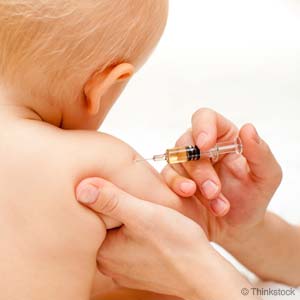
Once again it’s time for flu vaccinations and Science magazine teases us with the idea of a once in a life time flu vaccine:
Flu vaccines trigger production of antibodies that attach to hemagglutinin, a protein on the surface of the virus that helps it infect cells. But hemagglutinin mutates so rapidly that antibodies to one human variant have limited power against another, requiring vaccine makers to reformulate their shots each year. And when a novel animal flu jumps from birds or pigs into humans, existing immunity offers little defense and a pandemic can arise. Stopping it would require a new vaccine, which inevitably can’t be developed quickly enough.
Recently, researchers have found a possible solution: “broadly neutralizing antibodies” (bNAbs) in humans to hemagglutinin, able to bind most, if not all, variants. Like bNAbs discovered for HIV (see main article, p. 1168), they have sparked provocative ideas about how to make a single vaccine that could thwart all strains of the virus.
…
The bNAbs to influenza are slow to develop in part because hemagglutinin naturally crowds the viral surface, hiding the stem regions of the protein from the immune system. Led by virologist Gary Nabel, the group described in the 4 July issue of Nature how it created an artificial, self-assembling nanoparticle called ferritin, an iron-storage protein, that expresses hemagglutinins at an unnatural angle, exposing their stalks. This new presentation of the protein leads to a potent bNAb response.

